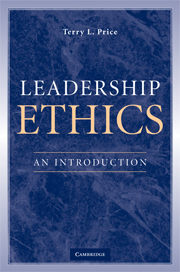4 - Traits and Virtues
Published online by Cambridge University Press: 05 June 2012
Summary
EXCEPTIONS FOR THE EXCEPTIONAL
As we have seen, Kant's ethics holds that our duties are determined by an attempt to universalize our actions. Because it is impossible to conceive of a world in which everyone lies and breaks his promises in order to get what he wants, there is a duty not to engage in actions such as lying and promise breaking. In such a world, no one would be willing to accept the word of anyone else. Indeed, no one would have an incentive to give his word to others in the first place. Appeals to truth and fidelity would be laughed off for what they really are in such a world – very thinly veiled attempts by actors to get what they want.
Although it is impossible for us to conceive of a world in which everyone lies and breaks promises, we can conceive of a world in which only some individuals tell lies or break promises. If an individual gives a careful description of the action to be universalized, then she seemingly avoids the contradiction. For example, can Martha Stewart imagine a world in which everyone named “Martha Stewart” engages in exception-making behavior? Of course she can! Yet it is clearly not in the spirit of Kant's categorical imperative for Martha Stewart to consider a world in which only she (and maybe a few others who share her name) tells lies and break promises to get her (their) way.
- Type
- Chapter
- Information
- Leadership EthicsAn Introduction, pp. 93 - 116Publisher: Cambridge University PressPrint publication year: 2008



